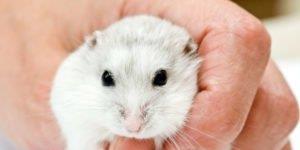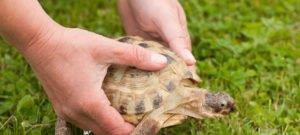For some families, pets have long been considered a member of the household. Pets can be a lot of fun, but not all are safe, especially during pregnancy.
Pregnant mothers should pay attention when there are pets in the house and learn to take care of them while keeping the fetus safe. Here, aFamilyToday Health will help you with some safe ways to help pregnant mothers and pets.
Is dog breeding safe for pregnant women?

Dogs are friendly and loyal animals, so there's no reason why pregnant mothers can't keep dogs. However, for the safety of pregnant mothers, you should note the following.
Pregnant mothers should not let dogs jump on their stomachs. If your dog has a few bad habits like biting and jumping, you should train him to stop it before giving birth. Also during the prenatal period, pregnant mothers should also remember to take the dog to get the necessary vaccines at the veterinary clinic. If you and your dog are particularly close, ask your loved one to spend more time taking care of them before your baby is born. This is because after the baby is born, you will have no time to worry about your dog.
Is pregnant and cat safe?

When raising cats, pregnant mothers need to be very careful because your cat can be infected with the parasite toxoplasma gondii and discharge them through the feces. Pregnant mothers who come into contact with cats or clean their feces may become infected with this parasite. You can also get this parasite by eating undercooked meat, especially pork, lamb or veal.
Also, ask a loved one to remove cat feces on your behalf every day and remind them to wash their hands after handling the cat or cat. You should keep cats indoors, keep them out of the way, and stay away from stray cats. If you are pregnant or gardening, remember to wash your hands thoroughly after finishing.
Be careful not to feed your cat raw or undercooked meat.
Mother pregnant with ornamental mice safe?

Many people like to keep rodents like a hamster or guinea pig as a pet. If you are pregnant or about to become pregnant, you need to be careful with these rodents. They can carry a virus called lymphocytic choriomeningitis (LCMV) that is dangerous for you and your baby because LCMV can cause birth defects or miscarriage.
Pregnant mothers can become infected with LCMV if they bite or come into contact with blood, urine or other items in their cages.
Even inhaling lithium dust or particles when cleaning a hamster or guinea pig's residence can expose you to LCMV.
If you have symptoms such as fever, headache, muscle pain or stiff neck, nausea, vomiting or don't feel hungry, you should see a doctor right away because you may have been infected with LCMV.
In fact, house mice (the wild mice that hide in or near the home) are the main source of LCMV. But your hamster or guinea pig can get LCMV by coming into contact with mice at home or at home.
Pregnant mothers can protect themselves from the LCMV virus by keeping babies in a separate area of the house and washing their hands after contact with them.
Pregnant mothers should ask relatives to take care of them and clean their accommodation and should clean outside or in a well-ventilated place.
Pregnant mothers should not let rats come into close contact with their face and keep away from wild rats.
If you have a lot of wild rats in your family or near you, use a rat trap or cat to catch them. However, you should consult your doctor before using rat traps that contain chemicals such as rat glue.
If your family has a child younger than 5 years old, you should make sure that an adult looks after the baby while the baby is playing near the hamlet and does not allow the baby to hold the mouse in his hand or hold his face. You should also teach your baby how to wash his or her hands after contact with mice to avoid infection with LCMV.
Can pregnant mothers raise reptiles and other exotic pets?

Some people like to keep reptiles like lizards, snakes or turtles as pets. However, they can carry bacteria that cause illness in pregnant mothers, one of which is salmonella (typhoid bacteria).
Most people who get salmonella get infected by eating contaminated meat or eggs. But there are also a few cases of Salmonella infection due to contact with reptiles. Even if you have your lizard tested for salmonella and a negative result does not mean it is not infected. Pregnant mothers and children under 5 years old are at high risk of catching salmonella. So if you are pregnant, you should give them away before giving birth.
aFamilyToday Health hopes that through the above article, you will know more information about pets and choose suitable pets while you are pregnant.















